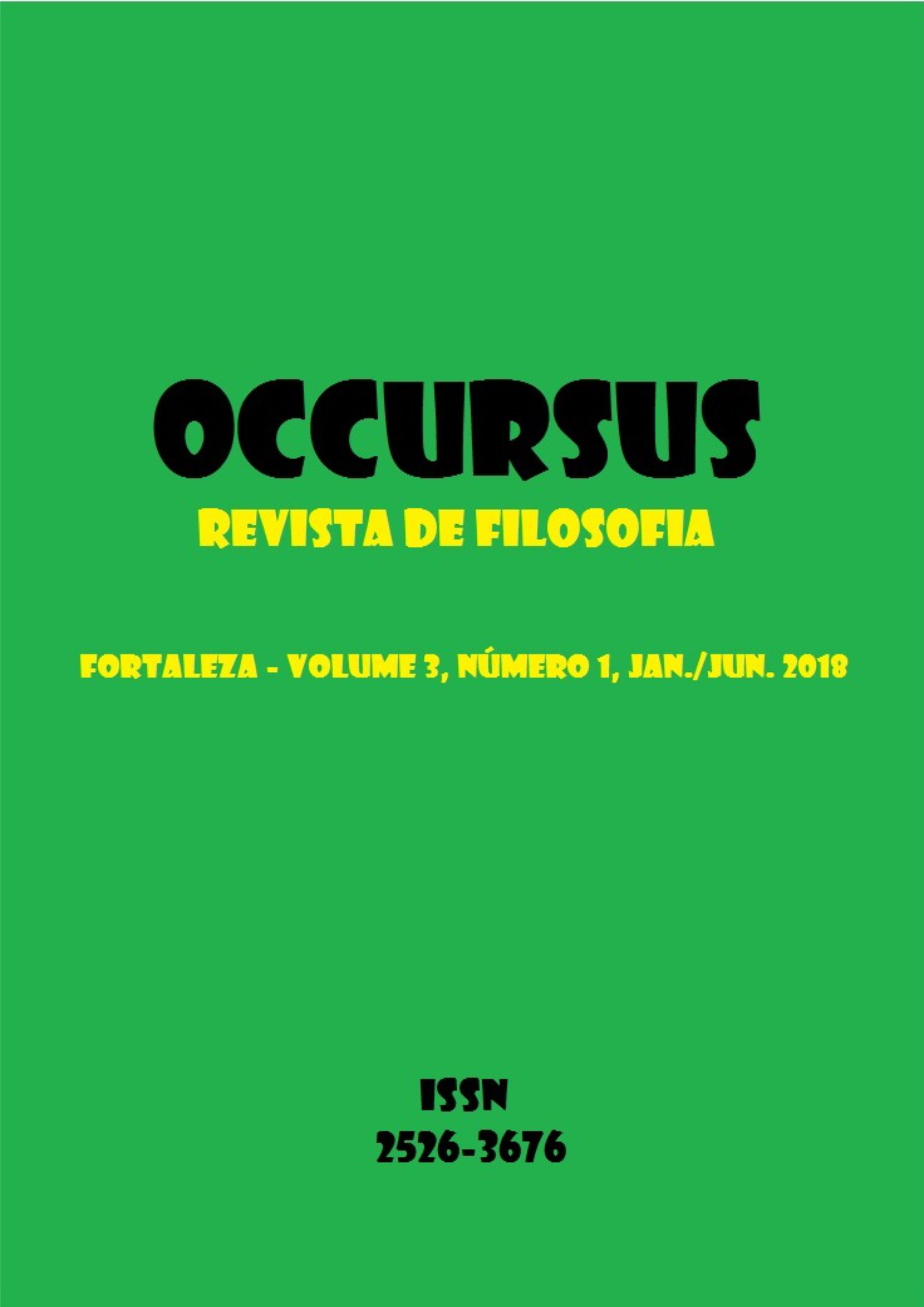Por que não devemos nos deixar levar pela opinião da maioria? Um breve estudo sobre o Críton de Platão
Palavras-chave:
Filosofia. Ética. Platão. Críton. Autonomia.Resumo
O referente artigo objetiva analisar as temáticas trabalhadas por Platão no diálogo Críton, que ficou conhecido como a obra dedicada ao estudo do dever. Nele, tomaremos como ponto de partida a censura de Sócrates ao enaltecimento da “opinião da maioria”, bem-quista e empregada por Críton ao decorrer de todo o diálogo. Abordaremos como Platão, mais uma vez, utiliza o evento da morte de Sócrates para pôr em xeque a tradição que, sem fazer o bom uso do lógos, tropeça em grandes contradições. Depois, a partir do argumento de que “não devemos cometer injustiça em hipótese alguma”, investigaremos como o diálogo parece caminhar em direção ao fato de que sempre precisamos seguir as leis, mesmo que os homens façam mau uso delas. O que permanece, portanto, é a crítica de Platão a democracia e como ela não é capaz de sustentar (como propõe) uma injustiça igual para todos. Por fim, tentaremos deixar explícito que a pretensão de Platão no Críton parece ser a de fortalecer a mensagem do seu mestre de que não vale a pena viver uma vida sem reflexão.
Referências
BRÉHIER, Émile. Historia de la Filosofia. Trad. de Demetrio Nañez. Prólogo de José Ortega y Gasset. Buenos Aires: Editorial Sudamericana. 1942.
CASTRO, Roberto Carlos Gomes de. Platão contra os Sofistas: Sobre a Retórica. Convenit Internacional, São Paulo, n. 12, p. 5-14, 2013. Disponível em: <http://www.hottopos.com/convenit12/05-14Roberto.pdf> acesso em: 26/03/2017
GOMPERZ, T. Os pensadores da Grécia: História da Filosofia Antiga. Tomo II – Filosofias Socrática e Platônica. Trad. de Cláudio J. A. Rodrigues. São Paulo: Ícone, 2013.
KIERKEGAARD, Søren. O conceito de Ironia: constantemente atribuído a Sócrates. Petrópolis: Editora Vozes, 1991.
LAÊRTIOS, Diógenes. Vidas e doutrinas dos filósofos ilustres. Intr., trad. e notas de Mário da Gama Kury. Brasília: Editora Universidade de Brasília, 2008.
PLATÃO. A República de Platão. Trad., Org. e notas de J. Guinsburg. São Paulo: Perspectiva, 2014.
PLATÃO. Crátilo. Trad. de Maria José Figueiredo. Lisboa: Instituto Piaget, 2001.
PLATÃO. Górgias. Trad. e notas de Daniel R. N. Lopes. São Paulo: Perspectiva, 2011.
PLATÃO. Diálogos I: Teeteto, Sofista e Prótagoras. Trad. e notas de Edson Bini. São Paulo: Edipro, 2007.
PLATÃO. Diálogos III: Fedro, Eutífron, Apologia de Sócrates, Críton e Fédon. Trad. e Notas de Edson Bini. São Paulo: Edipro, 2015.
PLATÃO. Diálogos IV: Parmênides, Político, Filebo e Lísis. Trad. e notas de Edson Bini. São Paulo: Edipro, 2015.
ROSS, David. Teoria de las ideas de Platón. Trad. de José Luis Díez Arias. Madrid, Ediciones Cátedra, 1997.
Downloads
Publicado
Como Citar
Edição
Seção
Licença
Copyright (c) 2024 Marcílio Bezerra Cruz , Marciano Romualdo Araújo Cavalcanti

Este trabalho está licenciado sob uma licença Creative Commons Attribution 4.0 International License.




